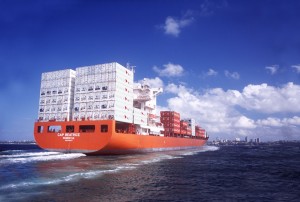By Steve Martin, Australian Meat Industry Council’s Director – National Processing
Australia will reap less from the Trans-Pacific Partnership Trade deal than most of the 12 other member countries, according to the World Bank.
Australia’s gross domestic product is likely to increase less than two percentage points by 2030 compared with about 10 percent for Vietnam and 8pc for Malaysia.
 They benefit, said the World Bank, from getting new access to larger markets in the US and Japan which Australia already has.
They benefit, said the World Bank, from getting new access to larger markets in the US and Japan which Australia already has.
This is also true for the red meat industry.
This is not an argument to not support the TPP – quite the contrary, and we continue to congratulate Minister Robb on his efforts with the TPP, but the reality is that trade is a two-way street.
The FTA door swings both ways. While being part of the TPP negotiations has been an important part of the Australian meat industry’s overall export strategy, it is also important to understand the current approximate 10pc tariff advantages Australian beef enjoys in Japan over the US and New Zealand will be eliminated with the implementation of the TPP.
This has now become a prominent benefit being touted by the US meat industry in its lobbying on the agreement, given the US export sector blame the tariff advantage Australia has in Japan as one of the reasons for their reduced performance in that market.
Australia’s 4.4c/kg import duty advantage over New Zealand on beef access to the US as a result of Australia’s free trade agreement with the US (that cost NZ over US$9.3million dollars last year) will also be eliminated.
The immediate advantage from the TPP will be access to markets like Mexico where current import duties on sheepmeat of 10pc and beef of 20pc to 25pc will be eliminated over time under the TPP.
The reality here again is that this will mean little unless the technical barriers to trade in Mexico are also eliminated, something that is not part of the TPP deal.
As a case in point, Australia use to have a 9000 tonne annual mutton carcase business in Mexico, even at 12pc import duty. The trade has been stopped by a Mexican decision that the flat stacking of carcases in a sea freight container (the way the trade is conducted successfully in most other parts of the world) is no longer acceptable, and they must be hung from rails the way a local meat truck would operate.
That’s totally uneconomic for international trade and of no food safety or technical merit, but it has stopped the trade. Only recently Mexico reconfirmed with the Australian government that this was an ongoing import requirement.
Removing the import duty won’t help this. Hence the focus by AMIC and the processing sector in rectifying these technical barriers to trade are an essential component of our overall market access strategy. Implementation of the TPP is still some time away with current media advice suggesting that the 12 countries will sign the agreement in NZ in early February.
Once the countries sign the TPP the main focus will shift to the ratification process. In Japan, Diet deliberations are expected to begin from April and the government and ruling parties are planning to set up a TPP select committee.
For the most important TPP member, the United States, there still seems to be much debate around whether this will be an issue during the Presidential campaign this year. While the US International Trade Commission has started to have hearings on the agreement, the majority assessment is that it is likely to be avoided during the US Presidential campaign and if so, ratification of the TPP in the US is likely to be left until post-November 2016.
* Steve Martyn is the Australian Meat Industry Council’s Director – National Processing.
